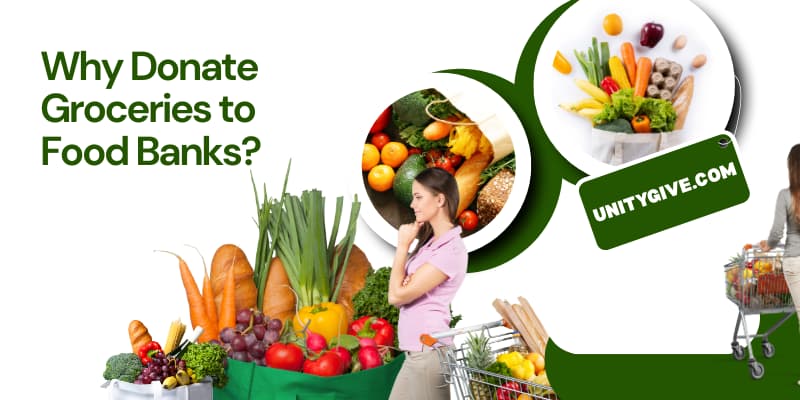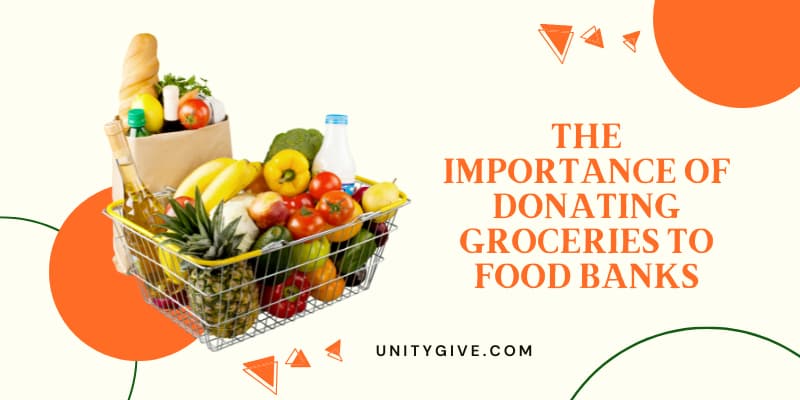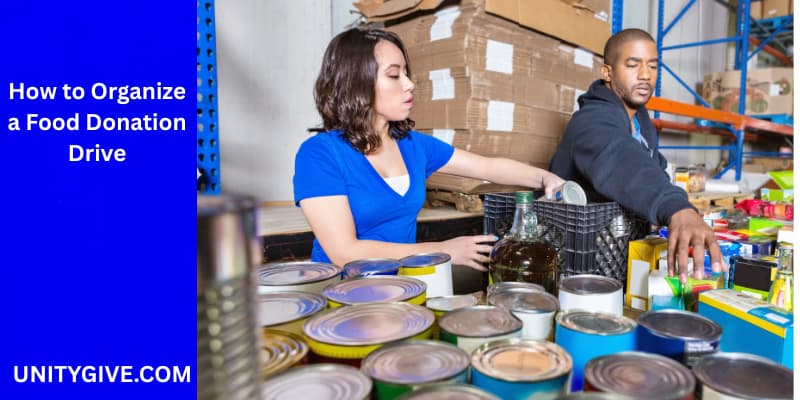The Importance of Donating Groceries to Food Banks: A Guide to Making a Difference
In times of need, food banks play a crucial role in providing essential nourishment to individuals and families who are facing financial hardship. Donating groceries to food banks is an effective way to give back to the community and ensure that those in need can access nutritious meals. This blog explores the significance of donating groceries, how to get involved, and why your contributions matter.
Why Donate Groceries to Food Banks?
Food banks are non-profit organizations that collect, store, and distribute food to individuals and families in need. They serve as a lifeline to communities during times of economic difficulty, emergencies, or natural disasters. By donating groceries, you can directly support people who are struggling to make ends meet, offering them access to healthy meals that may otherwise be out of reach.
1. Combatting Hunger and Food Insecurity
Hunger is a growing issue worldwide, and food insecurity is something that millions of people face daily. Many people, including children and the elderly, live in households that struggle to afford nutritious meals. By donating groceries, you can help fight food insecurity and ensure that no one goes to bed hungry.
2. Supporting Local Communities
Food banks typically work with local communities to distribute food where it is most needed. When you donate groceries, you’re helping people right in your neighborhood, ensuring that the support stays local. Whether you donate to a community food pantry, a church-based food program, or a larger city-wide food bank, your contribution makes a big impact on the people around you.

3. Providing Nutritious Options
Many food banks focus on providing a balanced selection of food, which includes not only canned goods but also fresh produce, dairy, and meats. Donating non-perishable items like canned vegetables, grains, and pasta is always appreciated. However, providing fresh produce or protein-rich foods like beans, nuts, or lean meats ensures that recipients get access to more nutritious, well-rounded meals.
4. Help During Emergencies
Food banks are often the first line of defense in emergencies like natural disasters, economic recessions, or other crises. Whether it’s a hurricane, flood, or pandemic, these events can disrupt people’s ability to access food. Donating groceries can help communities recover and rebuild faster, providing relief during times of need.
How to Donate Groceries to a Food Bank
If you’re considering donating groceries to a food bank, it’s simple and straightforward. Here are the key steps to follow:
1. Identify a Local Food Bank or Pantry
Start by researching food banks in your area. Many cities have dedicated organizations, often run by charitable groups or churches, that distribute food to those in need. Websites like Feeding America provide a nationwide directory of food banks, making it easier to find one near you.
2. Check for Specific Needs
Before donating, it’s important to check if the food bank has any specific requests or guidelines for donations. Some organizations may have lists of preferred items, or they might not accept certain types of food, like homemade goods or perishable items. You can typically find this information on their website or by calling them directly.
3. Choose Your Groceries Wisely
Focus on donating items that are non-perishable and in high demand. Canned goods, rice, pasta, boxed meals, cereal, and dried beans are commonly requested. Consider also donating personal hygiene products, baby food, or pet food, as these items are often needed as well.
4. Drop Off or Organize a Food Drive
Many food banks have designated drop-off locations where you can bring your donations. Alternatively, if you want to contribute on a larger scale, you can organize a food drive within your workplace, school, or community group to gather donations from others. This can significantly increase the amount of food available to those in need.
5. Monetary Donations Matter Too
If you’re unable to donate groceries directly, consider making a monetary donation to the food bank. Most organizations can purchase food at a lower cost through their established networks, stretching your dollar further and providing more meals for those in need.
Benefits of Donating Groceries to a Food Bank
Donating groceries to a food bank doesn’t just benefit the recipients; it also has several positive effects on you as a donor:
1. Fosters a Sense of Community
By donating to a food bank, you contribute to creating a stronger, more compassionate community. Helping others in need can foster a sense of belonging and encourage others to get involved in charitable activities as well.
2. Tax Deductions for Donors
In many regions, food donations to qualifying organizations are tax-deductible. If you’re looking to reduce your tax burden, donating groceries can be a smart financial move. Always keep the receipts and make sure you donate through an organization that qualifies for these deductions.
3. Personal Satisfaction
There’s something deeply fulfilling about knowing you’ve made a direct impact on someone’s life. Whether it’s providing food to a family in crisis or offering a bag of groceries to someone who has fallen on hard times, the satisfaction of giving back cannot be understated.
Conclusion
Donating groceries to a food bank is a simple yet powerful way to make a tangible difference in the lives of those facing hunger. By donating, you can help address food insecurity, support local communities, and offer relief during crises. The impact of your actions extends beyond just food – it’s about fostering empathy, compassion, and a collective spirit of support. If you’re ready to give back, reach out to a food bank today and make your contribution. Your generosity could be the lifeline someone needs.
Read Also: How to Donate for Religious Pilgrimage Support: A Path to Spiritual GivingFAQ’s: The Importance of Donating Groceries to Food Banks
What is the best food to donate to a food bank?
Non-perishable items such as canned vegetables, beans, pasta, and cereal are great choices. Fresh produce and protein-rich foods are also valuable.
How do food banks distribute donations?
Food banks typically distribute donations through local food pantries, shelters, or meal programs where those in need can access them.
Can I donate fresh produce to a food bank?
Yes, many food banks accept fresh produce. However, it’s important to check with your local food bank to ensure they can handle perishable items.
Can I donate cooked meals to a food bank?
Most food banks do not accept cooked meals due to food safety regulations. Stick to non-perishable or properly packaged items.
How can I organize a food drive?
Contact a local food bank to inquire about their needs, set up a collection point, and encourage your community or workplace to participate in the food drive.





